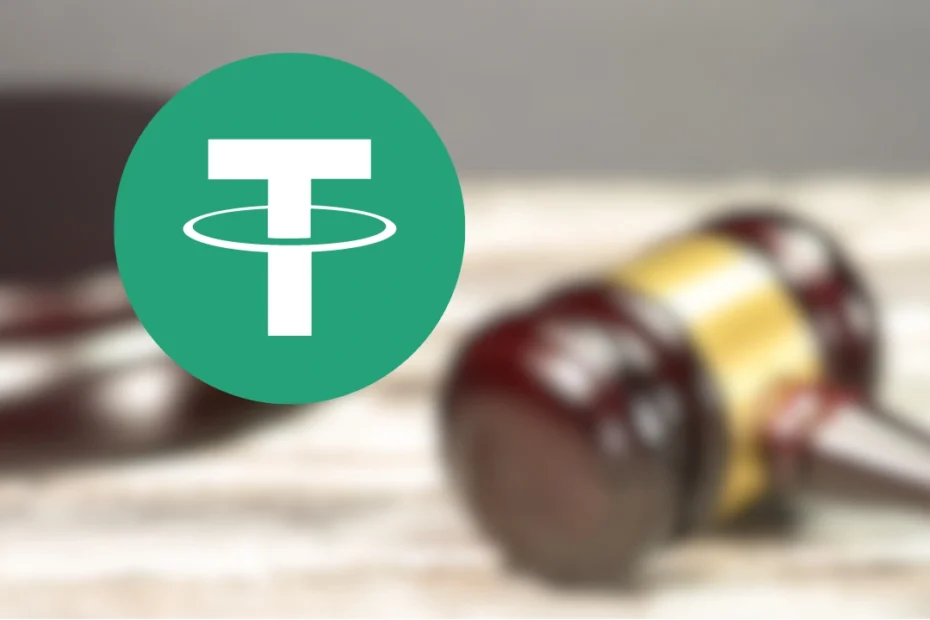Tether’s dominance as the unrivaled leader in non-regulated stablecoins has been extended following the U.S. Senate’s inability to approve the GENIUS Act.
The
cryptocurrency stablecoin
nearly concluded its seamless operations in the US, as various Republican senators along with potentially some Democratic counterparts advocate for bringing it under U.S. authority.
The Guiding and Establishing National Innovation for U.S. Stablecoins (GENIUS) Act wasn’t particularly groundbreaking. Actually, it stood out as one of the more practical cryptocurrency-related laws introduced recently. Its aim was to instill greater clarity and responsibility among stablecoin issuers through straightforward measures such as requiring licenses, mandating disclosure of reserves, and instituting federal supervision. Nothing overly innovative here; merely prudent steps were taken.
Fortunately for Tether, the Senate
failed to advance
a ballot to start official discussions on the updated GENIUS Act.
The modified GENIUS Act stipulations sparked queries among participants in the decentralized finance sector.
If you’ve spent more than five minutes in the digital assets sphere, you’re aware that Tether is ubiquitous — driving most of the activity.
crypto trades
, offering liquidity to decentralized finance platforms, and even functioning as an unofficial central bank for certain international markets. Nonetheless, Tether has frequently faced criticism due to its opacity and unclear reserve procedures.
This legislation might have compelled Tether and other issuers to adhere to more transparent and secure regulations. However, the Senate backed down instead.
Originally
proposed by Senator Bill Hagerty (R-TN)
In February, the GENIUS) Act was jointly sponsored by Chairman Tim Scott (R-SC) and Subcommittee on Digital Assets Chair Cynthia Lummis (R-WY).
Following bipartisan backing, Hagerty’s bill failed with a vote of 48-49 in the Senate chamber on Thursday.
Prior to the voting, GOP legislators amended the legislation by incorporating several additional clauses; however, certain representatives stated that they hadn’t yet perused or assessed these new additions.
Some people went so far as to say that the Republicans hurried the voting process for the legislation and ended talks too soon. This hastiness influenced the outcome of the vote, causing multiple Democrats to withdraw their backing from the bill.
Furthermore, the updated bill omits the names of the two Democratic co-sponsors, Kirsten Gillibrand and Angela Alsobrooks. This amended version is now exclusively backed by Republican senators: Bill Hagerty, Tim Scott, Cynthia Lummis, and Senator Dan Sullivan.
Nevertheless, the legislation has a higher likelihood of progressing in the Senate if it gains at least one Democratic co-sponsor.
The latest bill features “extra-territorial jurisdiction,” requiring overseas stablecoin issuers to adhere to U.S. rules whenever they serve American clients. This clause might spell the end for Tether’s ambiguous legal status and usher in more rigorous regulation.
Nevertheless, as outlined in earlier provisions, the bill allows stablecoin issuers to branch out into different asset classes, potentially offering advantages for the firm over time.
In contrast to the previous edition, the updated bill expands the definition of a digital asset service provider to encompass developers,validator nodes, and administrators of self-custodial wallets.
Nevertheless, this alteration in the definition has sparked worries regarding its potential impact on various participants within DeFi systems and whether these entities might have to adhere to regulations such as the Bank Secrecy Act and anti-money laundering laws. Additionally, digital asset service providers could face legal consequences for utilizing non-approved elements like unauthorized decentralized stablecoins.
Moreover, the updated GENIUS Act empowers the Treasury Secretary to relax rules for minor or trial initiatives and to make unilateral decisions during ‘urgent situations,’ which has sparked concerns regarding potential abuse of power.
Despite this, with the bill now available for public scrutiny, members of the cryptocurrency community have the opportunity to assess its benefits, potential effects on the sector, and how it varies from the version endorsed by the Senate Committee back in March.
The legislation regarding stablecoins might come up for debate once more.
While the
stablecoin bill
failed to advance, some analysts believe it’s only a temporary stalemate, and the bill may eventually pass.
Kara Calvert, vice president
Regarding U.S. policy at Coinbase,
even commented,
It will survive to battle another time.[…]Would I have preferred for the vote to succeed? Definitely. Would that have improved my mood significantly? Without a doubt. However, I left without believing that this legislation would fail or that this matter would be resolved quickly.
Senator Ruben Gallego, who leads the Democrats on the Senate’s Digital Assets Subcommittee, asked for the vote to be pushed back to Monday to allow more time for lawmakers to review the legislation. Nevertheless, this request was refused, resulting in the bill not moving forward.
In the meantime, Cody Carbone, who leads the crypto advocacy organization The Digital Chamber as its CEO, recognized the bill’s rejection on Thursday as a disappointment yet considers it “a long way from being called a loss.”
Several experts suggest that an additional vote might occur before the end of May to initiate talks about the stablecoin legislation.
If legislators genuinely aim to safeguard consumers, encourage innovation, and regain supremacy in fintech, they must not permit their individual political agendas to obstruct crucial laws.
The GENIUS Act went beyond addressing solely Tether; it aimed to establish guidelines for how digital currency should function within the biggest economic market globally. These guidelines must be developed promptly, regardless of whether they come from this legislation or some other source.
